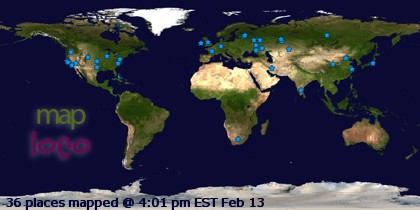You are currently browsing the daily archive for December 14, 2007.
On Tuesday, there was a bombing in Algiers, and 17 people died. Closer to home, I read the story of a teenage girl who committed suicide after getting hate mail on a MySpace account, supposedly from a boy, actually from the mother of another teenage girl down the block.
We went to the mall to go Christmas shopping and look at all the pretty things.
On Tuesday, many people here in Oregon continued to be homeless, flooded out; their wrapped presents and early Christmas trees swept away, pets drowned and cars overwhelmed in the deluge. A late mudslide sent trees crashing into houses and swamped a highway; the photo of it on the cover of the morning paper was amazing.
We lit the lights on our tree and played Christmas carols, enjoying the sound of ethereal voices soaring up, up, up on a descant at the end of O Come, All Ye Faithful.
It is easy to forget about other’s sufferings. Turn off the television (something we’re always happy to do), only read the funny bloggers and don’t read the Yahoo news, think of happy things. We’ve all got our own grief. My mother’s health is failing, for example. She’s 84 and has Parkinson’s. I’m trying to spend all the time with her that I can, but it isn’t much—there are many logistics that make it difficult. But I can always escape into a book or a movie.
No matter where we live in the world, it is easy to close ourselves off from the pain of others. Sometimes this is good. If we are dealing with our own struggles at a time when they are intense, it may be necessary for our mental health. But it can also be a way to absolve ourselves from the responsibility we have for our fellow human beings.
In America, it’s really easy to forget. Our roads are paved, our houses are lit. In Africa, it’s a bit harder. I would walk out every morning from my nice house and see a family who lived in a tent; they regularly rang my doorbell and asked me for water. When’s the last time someone who wasn’t just a visiting thirsty friend asked you for water, so necessary for everything we do throughout the day?
In America, life is easier. We stress about the things we want—pretty candles for decoration! new holiday-themed cushions for the couch!—but in general, we know that even the homeless on our streets can, if necessary, find a bed and a meal for the night. Our government is involved too; giving money for flood relief and monthly checks to the mentally ill on the streets. We can give money to help shelters, so that we don’t have to worry about giving an addict money for another shot or another drink, and feel absolved from guilt.
In Africa, it’s harder to get that feeling. It’s complicated. The intersections are lined with beggars, women in wheelchairs holding up emaciated infants before your horrified eyes, and you know that they are not getting monthly checks from anyone. But you still have to be smart. Those small boys…surely that one is not more than 4 or 5…with huge brown puppy-dog eyes, holding up a red can and telling you they’re hungry, must not be given money—at least not if you know the system. These are Talibe boys, who have been sent by their parents into the care of a local imam; he in turn sends them into the streets to beg. If you give them money or tea or sugar, they take it back to their imam. If you hand them a carton of milk you have just bought for yourself, you must open it first—otherwise they will take it back into the store and get the money for it. The same goes from bananas and oranges. Many boys spend the years of their childhood on the streets of Nouakchott; I’ve heard that those who return with their cans empty at the end of a day may be beaten. And yet there are seemingly thousands of them on the streets on the city, surrounding your car everytime you stop.
I’m happy to be in America. I’m happy to have a break from that crushing guilt of wealth—of knowing that we can afford to eat meat every day, of knowing that we may feel stressed about our finances but if we run out of water, we’ll still be able to buy some. Far from there being something wrong with this, there’s something beautiful about being in this situation; it’s a lovely thing to have your needs met. The problem is when we forget that we are in the minority in this world; when we think that the pretty things at the mall are all there is, when our window on the world is blocked by the weight of our possessions.
I have hurt my in-laws’ feelings by my post about their cluttered house so I have edited that post to remove it. I want to publicly state again that my in-laws are very generous people, kind to a fault, and that their cluttered house reflects their overflowing and bighearted spirits. I would choose their faults over having in-laws that were critical, parsimonious, or uptight about my parenting or life choices, etc. I love them both dearly, and I deeply regret having hurt them.






